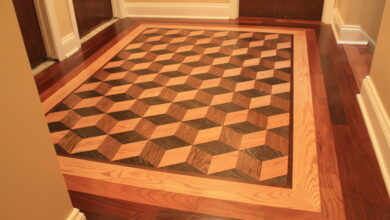Choosing the Right Home Survey: A Step-by-Step Decision-Making Guide

Are you in the process of buying a new home? Congratulations! It’s an exciting time filled with anticipation and dreams of settling into your own space. However, before you finalise the purchase, it’s crucial to have a property surveyor conduct a home buyers survey or building survey to ensure you are making an informed decision and protect yourself from potential issues down the line. In this step-by-step guide, we’ll go through the process of choosing the right homebuyer survey for your needs.
Understanding the Importance of a Survey
Chartered surveying is a detailed inspection of a property conducted by a qualified professional – a surveyor with RICS. The purpose of the survey is to identify any structural or maintenance issues that may affect the property’s value, safety, or your future living experience. By investing in the services of property surveyors, you gain valuable insights into the condition of the property, enabling you to make an informed decision and negotiate repairs or adjustments if necessary.
Types of Surveys
There are several types of surveys available when buying a home, each catering to different levels of detail and inspection. This house surveyor in Norwich can help you determine the best type of survey for your unique situation.
The three main types of survey are:
- Condition report: This is the most basic survey, providing an overall assessment of the property’s condition, highlighting any major issues that require attention. It’s suitable for newer properties or those in good condition.
- Homebuyer’s report: This intermediate-level survey provides a more detailed inspection, including a thorough examination of the property’s interior and exterior. It covers significant issues, like damp, subsidence, and structural defects, and offers recommendations for further investigation.
- Full structural survey: The most comprehensive type of survey, a full structural survey leaves no stone unturned. It’s an ideal choice for older homes, unusual properties, or properties on which you plan to do a lot of renovation work.
Choosing a Surveyor
To ensure the accuracy and reliability of your home buyer survey, it’s vital to engage a qualified and experienced property surveyor. Look for professionals who are members of reputable organisations, such as the Royal Institution of Chartered Surveyors (RICS) and experienced as property valuers. They adhere to strict standards and possess the expertise needed to carry out a comprehensive assessment.
Assessing the Property’s Needs
Consider the age, size, and condition of the property when selecting the appropriate home buyer survey. Older buildings or those with a complex structure may require a more detailed inspection to uncover potential hidden issues. Similarly, if you have specific concerns about the property, such as damp or subsidence, discuss these with your surveyor to ensure they are adequately addressed.
Evaluating Costs and Timeframes
When choosing a survey, it’s essential to consider both the cost and the timeframe involved. While a condition report may be more affordable, a homebuyer’s report or building survey provides more comprehensive information, but at a higher cost. Plus, consider the surveyor’s availability and the time it will take for them to complete the survey, as this could impact your purchasing timeline.
Choosing the right survey is a crucial step in the home buying process. By following these steps, you can make an informed decision and protect yourself from potential issues.





